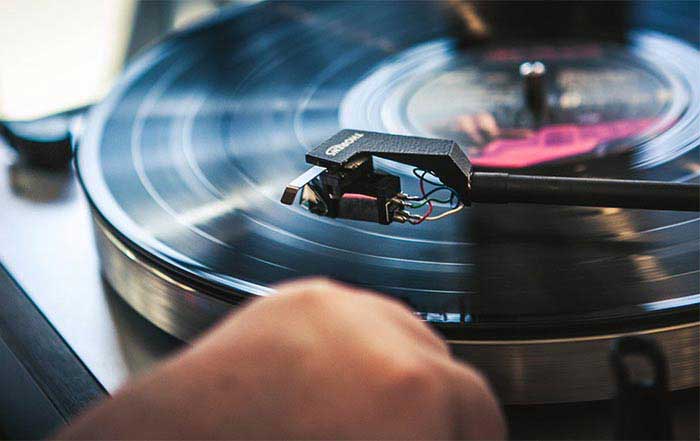Can you remember? Thomas Edison's voice was the first-ever recorded human voice. In 1877 Edison's voice was captured on phonograph; he was animatedly reciting the nursery rhyme, "Mary had a little lamb." A few years later, in 1887, Emile Berliner made history when he invented the first machine that could record and play back sound. The device was designed on a flat disc which preceded the modern (20tth century) record. In the next 60 years, men continually improved and standardized the nature of records and record players. Eventually, the 33 and 45 RPM types of records emerged as the best, gradually overtaking other formats in the year following the Second World War. By the 1970s, men had advanced record player technology.
The technology had evolved so much that in the next 50 years, very little could be improved. But over time, other evolved technologies slowly emerged. First, cassette tapes came and went. Then came CDs that ruled the scene for some time and were gradually overtaken by newer technology. When CDs started becoming obsolete, MP3 players quickly became the vogue. But later, MP3 were also replaced by the arrival of phones that could play music. Later, the world welcomed hi-tech cameras and pocket planners as other elements of new technology.
In 2020 something interesting happened. For the first time in over one generation, vinyl records made a surprising comeback, soaring in popularity. So, in that year, the sales of record discs (or vinyl records) notably surpassed the sales of CDs. It seems there were two main reasons for this. Analysts noted that CD sales had dropped significantly in the past few years. Yet the sales of vinyl records shot up. But there was another surprising element to the new phenomenon: Anyone could be forgiven for thinking that a particular group was responsible for this new renaissance- the nostalgic Boomers or Generation Xers. Many would have thought these were behind the record sales. On the contrary, many surveys revealed that the most unlikely group was primarily responsible for the comeback of vinyl records: The Millennial consumers. Evidently, this was the group behind the dramatic rise in vinyl record sales.
Generally, the way most people listen to music has considerably changed. These days you're likely to hear music when you're in your car, in the gym, the coffee shop, or while striding down the street. The CEO of Victrola, Scott Hagen, says: "In every store you go, you're likely to be entertained with music. Undoubtedly, people are consuming more music than they used to do. But there's a difference- they aren't consuming it in the same way. What could it be? Just think of it- people used to stop, sit and listen to entire albums, from the beginning to the end. Yes, that has always been relevant; it'll continue to be relevant going forward." And the CEO of McIntosh Labs, Charlie Randall, agrees with these sentiments: " I believe it's natural for people of all generations to think the technology of their own time will eventually be replaced by future technology- that he present will become extinct.
Well, I think this is largely true, with one major exception: Vinyl records. There's definitely something romantic regarding the staying power of vinyl records. There's something deeply satisfying when you open that album jacket, see the fantastic artwork, and study the linear notes while still listening to the album. Admittedly, this is something today's digital files simply cannot replace," he says.
Remarkably, the popularity of the vinyl record seems to defy certain seeming disadvantages. For starters, there's nothing particularly fast about starting and playing a vinyl record. Think of it: You can quickly tap your phone and swiftly pull up a favorite song on Apple Music or Amazon Unlimited in a few seconds. However, with a vinyl record, you must first remove it from the sleeve. Next, you need to switch it on and keep waiting while the warm crackle prefaces a truly rare experience. Yes, with the vinyl record, you enjoy music as an ongoing activity, not merely as the backdrop.
So, against all odds, it seems the vinyl is definitely here to stay. Never mind that numerous technological advances (throughout the decades) have appeared to threaten the relevance and place of vinyl in the modern world. Indeed, a recent study by the RAA surprisingly found that vinyl records surpassed CD sales in 2020 due to the records' "relentless staying power and popularity." The same survey also discovered another significant factor: A mere 6% of music was now downloaded- this is far less than what's physically purchased in the form of CDs, tapes, or records.

